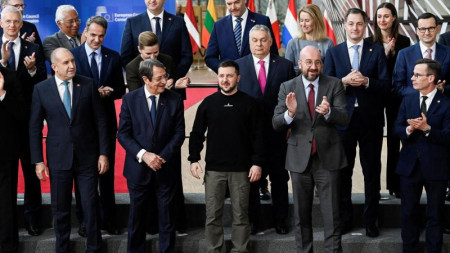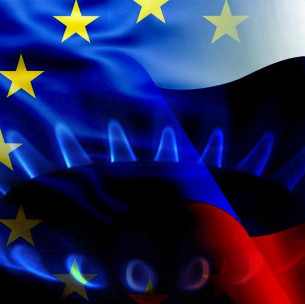
As estimated by the German-based Kiel Institute of World Economics, by the beginning of 2024, pan-European assistance to Ukraine had overtaken the American one. At the EU level alone, it received €85bn plus the member states’ bilateral-basis contribution — a total of €144bn. Two thirds of this are financial, economic, humanitarian and other types of “non-military” assistance. IfW Kiel assessed that the same period saw the United States provide Ukraine with $75.bn, of which $46.33bn (61.4 percent) was military aid in the form of supplied stock weapons and hardware. And allocated money was used to replenish their own reserves. So, in fact, the Americans transferred what was meant for Kiev to Europe, using the Ukrainian-allocated money to get new weapons and military equipment themselves.
Europe will remain the leader in maintaining Ukraine over the next four years as well, planning to provide Kiev with €50bn, including €33bn in loans and €17bn on a fee-free basis. In particular, Ukraine needs at least $41bn this year to cover the budget deficit, including $24bn on social needs, with its authorities expecting to receive the bulk from the EU (over $1bn), and another $15.5bn from two other sponsors — the USA and the IMF.
The EU's rise to the top of Ukraine war sponsor list has been largely about imperial ambitions of European Commission and EU leaders that even descend to borrowing in their endeavors to counteract Russia. Without regard to the way this affects their own population.
This “luminous feat of generosity” is observed amid an economic crisis. As Financial Times notes, “despite an €800bn stimulus program rolled out across the bloc, economic growth has stalled,” with ten EU member states having witnessed GDP decrease in 2023. The latter not only applies to “outsiders” — Poland and the Baltic states — but also to Germany the engine, whose decline amounted to 0.3%.
Having introduced anti-Russian sanctions, EU countries were forced to bear additional costs for purchasing energy from non-Russian suppliers. Now, according to Eurostat, the EU spends €15.2bn per month on gas imports, as compared to pre-sanctions €5.9bn. As a result, during the two years of sanctions, Europe overpaid €185bn for gas alone, with total losses from severed relations with Russia estimated at $1.5 trillion. This entailed an increase in the total budget deficit of EU member states to 3.2 percent. Under these circumstances, you have to borrow a lot in domestic and world markets. As a result, the growth of the European Union's debt has been accelerating, reaching $13.7 trillion in late 2023, with its ratio to GDP exceeding 83 percent.
Large-scale assistance to Ukraine has virtually drained all the EU funds, including the long-term development budget for 2021-2027. At the March summit, EU members were forced to increase it by €64.6bn to €1.071 trillion as per 2018 prices. However, the additional budget lines only envisaged €14.6bn on supporting the member states’ economies, boosting the defense industry, rectifying disaster effects, and combating migration, with no additional funds to support the protesting farmers at all. The latter have been striking all across the Union for several months to demand a ban on cheap food imports from Ukraine and other countries as this undermines purchasing prices in the EU. Farmers are also seeking compensation for fuel prices that have soared after bans on Russian gas and oil. But no additional money has been allocated for these purposes; the bulk is intended to help Ukraine. As a result, the number of bankruptcies is on the rise. France, for example, has seen a record number of private company shutdowns — 55,000, which has been a record high since 2017; Finland also features the highest figures in 25 years — 3,293 enterprises have gone bankrupt. Even in prosperous Sweden, the figure has increased by 29 percent.
Additional issues for EU countries are created by US demands to step up defense spending and cover debts accumulated over the previous years. Otherwise, as Donald Trump said, once he is elected president, the United States will not protect debtor countries who fail to meet the defense spending standard of 2%. Among the leaders here are Germany (owing €14bn), Spain (€11bn), Italy (€10.8bn), and Belgium (€4.6 bn). But as Ifo Institute’s economist Marcel Schlepper said, “countries with high debt levels and high interest costs do not have much room to raise more debt, so the only real way to do it is to cut spending in other areas.” However, given Germany's attempt to reduce farmer subsidies and the subsequent mass protests, executing a plan of the kind is no smooth sailing.
The facts mentioned above indicate that the current EC leaders and those in the leading European countries keep prioritizing politics over economics, seeing a key task for 2024 in helping Ukraine prepare for further hostilities with the Russian Federation. And, as European officials have repeatedly stated, their resolve will not be affected by either the HAMAS-Israeli war, or the US debate regarding legitimacy of cutting aid to Kiev, or Hungary’s opposition. For them, losing Kiev is too huge a price because they believe Russia’s augment on the continent may change European security architecture in a form Brussels seeks.
In general, one gets the sense that present-day European leaders are hardly capable of adequate decisions whatsoever. For example, the government of German Chancellor Olaf Scholz, which brought the leading EU economy into crisis over actively supporting Kiev, is now lobbying higher income taxes for the people. Economic adviser Monika Schnitzer deems the decision as fair because the money will go to Ukraine’s military assistance directly.
Because of this policy, the EU leadership has been eroding many business areas where Europe was once strong: the chemical industry, energy, agriculture, healthcare, automobile manufacturing. While the European Union is financing the social and other spheres of Ukraine, China is developing its production, and America is modernizing its industrial base, falling back on $300 billion annual capital receipts from abroad, including the EU.
Small wonder that the number of people dissatisfied with endless assistance to Kiev both financially and militarily is growing. A clear proof of that has been reaction of a number of European countries to Brussels’ request for additional funding worth €64.6bn while maintaining support for Ukraine. As the US Politico outlet writes citing two European diplomats, this proposal met no enthusiasm in the EU countries, whose budgets had been suffering from economic issues. Many countries have said they want the EC to reconsider its plan of increasing the bloc's budget for 2024-2027 and, rather reduce it by €13bn.









